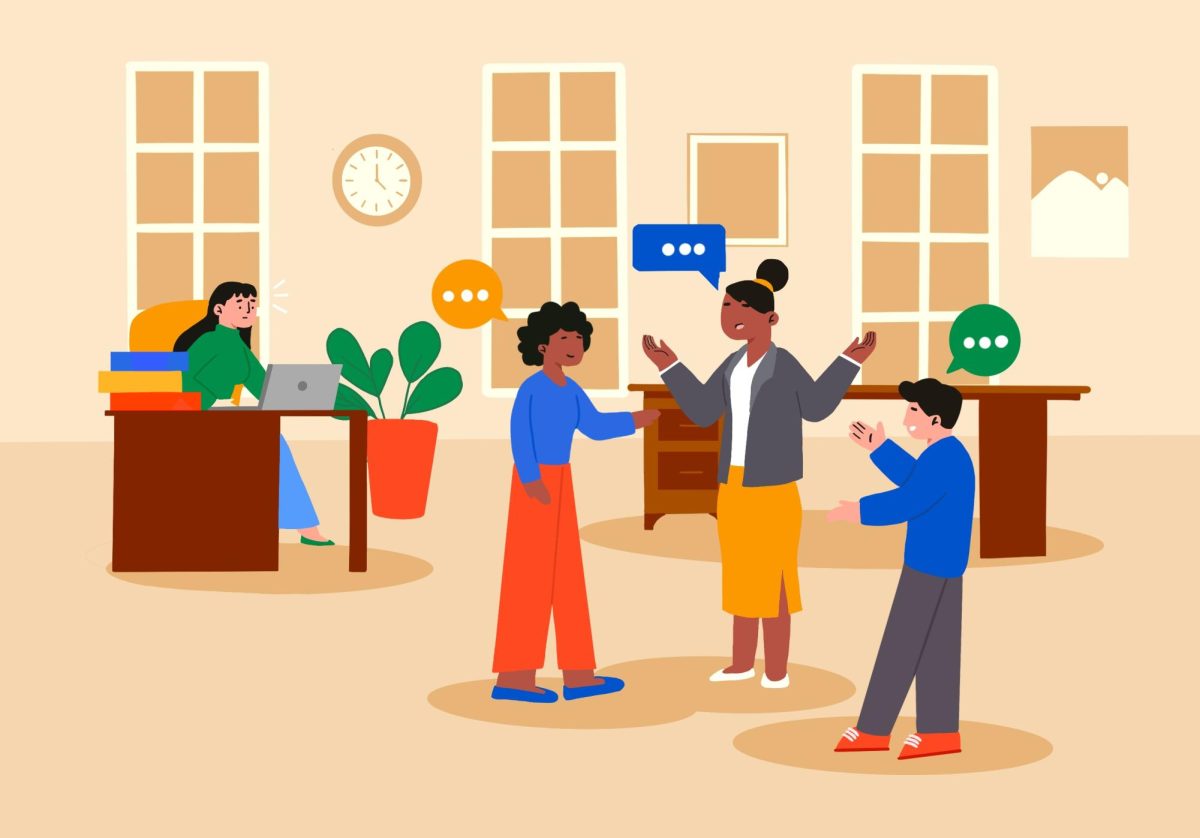For the first 18 years of my life, my self-worth depended solely on academics.
I aimed for straight A’s and let nothing get in my way. Anything less than 90% on assignments sent me into an existential crisis. I dedicated my entire life to school, prioritizing it over my family, friends and personal well-being.
Academic success benefited my life in many ways, bringing me scholarships, awards and a sense of purpose.
Yet it never brought me happiness.
Despite my good grades, I suffered throughout high school. I had zero friends. My classmates existed in a social sphere that I observed from the outside. I could barely sustain a conversation.
I knew I needed to face my personal problems in order to grow. But I convinced myself that if I was academically successful, I would not need friends or social interaction.
By senior year of high school, I realized my mistakes.
College was a new opportunity, but I started my quest for a social life far behind my peers.
I knew none of the social media trends, pop culture or social knowledge that most students considered universal. I felt incapable of getting to know people, had no sense of personality and radiated awkwardness. I experienced constant mental breakdowns and could barely live independently.
Fortunately, the exact purpose of college is to turn nervous freshmen into employable adults who can intelligently interact with coworkers and a boss.
Over the past year, I have grown dramatically and am much closer to a functioning adult but very little of this growth resulted from classes. Investing time into my social life was much more beneficial.
Jay Johnson, a second-year student at the University of Minnesota, said finding a balance between social life and academics is important in college.
“I think it’s important to get socialized, make friends and find those connections to help you balance your academic life because no one wants to be alone,” Johnson said. “But it’s definitely important to keep that focus on your academics because that’s what’s going to carry you through your years here.”
Making friends and developing a social circle at a large college is rarely easy, though.
“This is such a huge campus,” Johnson said. “There’s so many things to do, but it’s also super isolating. I’m not the best at making friends, so that was really nerve-wracking for me. It was holding me back from putting myself out there.”
Expanding your social circle leads not only to personal growth but can also help your professional development.
“Networking to build connections, especially within your major, makes friendships with people that you might end up working with someday,” Johnson said. “Especially in the Twin Cities where there’s so many job opportunities.”
Grace Vieth, a sixth-year graduate student in the Social Interaction Lab in the psychology department, said social life is necessary for human development.
“We’re social beings, so we’re always going to crave a sense of social belonging and affiliation with others,” Vieth said. “It provides a sense of safety and reassurance when we are able to connect with others and perceive that we have support available to us.”
Vieth said having an active social life often correlates to academic success, rather than the opposite.
“We know that students who feel a sense of belonging on campus tend to also excel academically,” Vieth said. “And we know that loneliness, which is rising especially in young adult populations, is really problematic.”
College is an important time to develop people skills because it gets more difficult after graduation.
“I think if people value friends in college and start developing skills about how to maintain and keep their friends, that’s going to benefit them in later adulthood when perhaps their friends don’t live down the hall in their dorm, but across the country,” Vieth said.
Social skills developed in college also help out in later careers, Vieth added.
“People who excel in having friends in high school and in college go on to typically be better employees and excel more in the workforce because they have good people skills,” Vieth said.
Jade Intihar, a first-year student, said introverted or shy students may find it harder to connect with others, but having a social circle is still valuable.
“It’s important to make friends and build a group you feel comfortable with,” Intihar said. “It’ll make your college experience better.”
Still, Intihar said academics are usually more important.
“I prioritize academics, mostly,” Intihar said. “It’s why I’m here. But it just depends on the person.”
For me, learning how to make friends and talk to people was initially challenging. After months of forcing myself to attend club events and student organizations, though, I gradually made progress.
Today, I still feel behind my peers, but I am far more comfortable in social settings. I can talk at ease with strangers and have a stronger sense of personality.
Ultimately, letting your social life get in the way of your studies is a problem, just like how focusing too much on grades can hamper personal growth. Both are worth investing time in, and striking a balance is possible.
Dedicating time from your day to be social is never wasted time. It is a smart personal decision.













